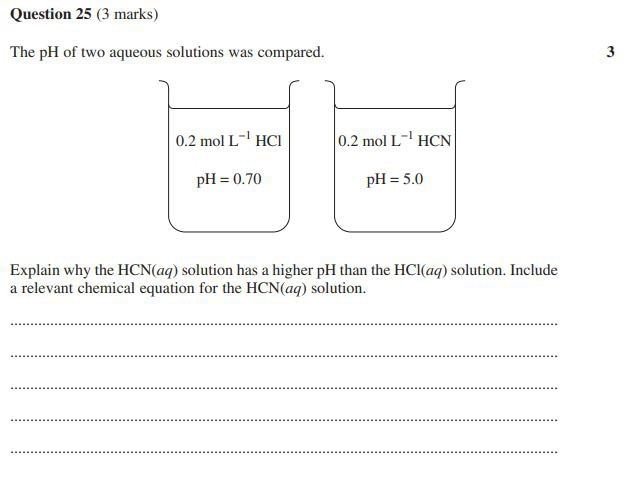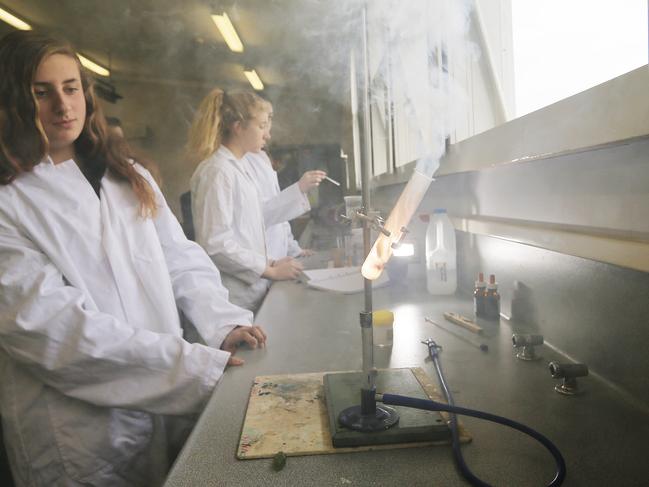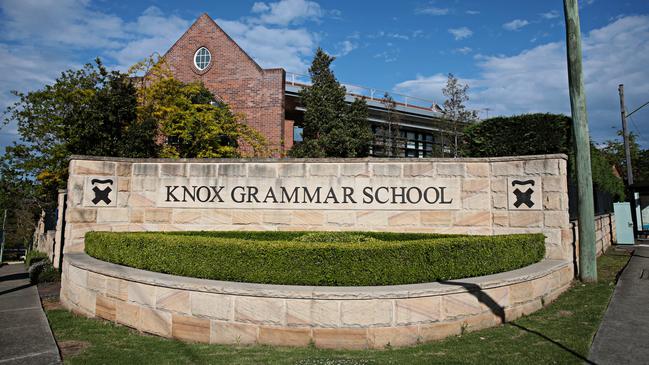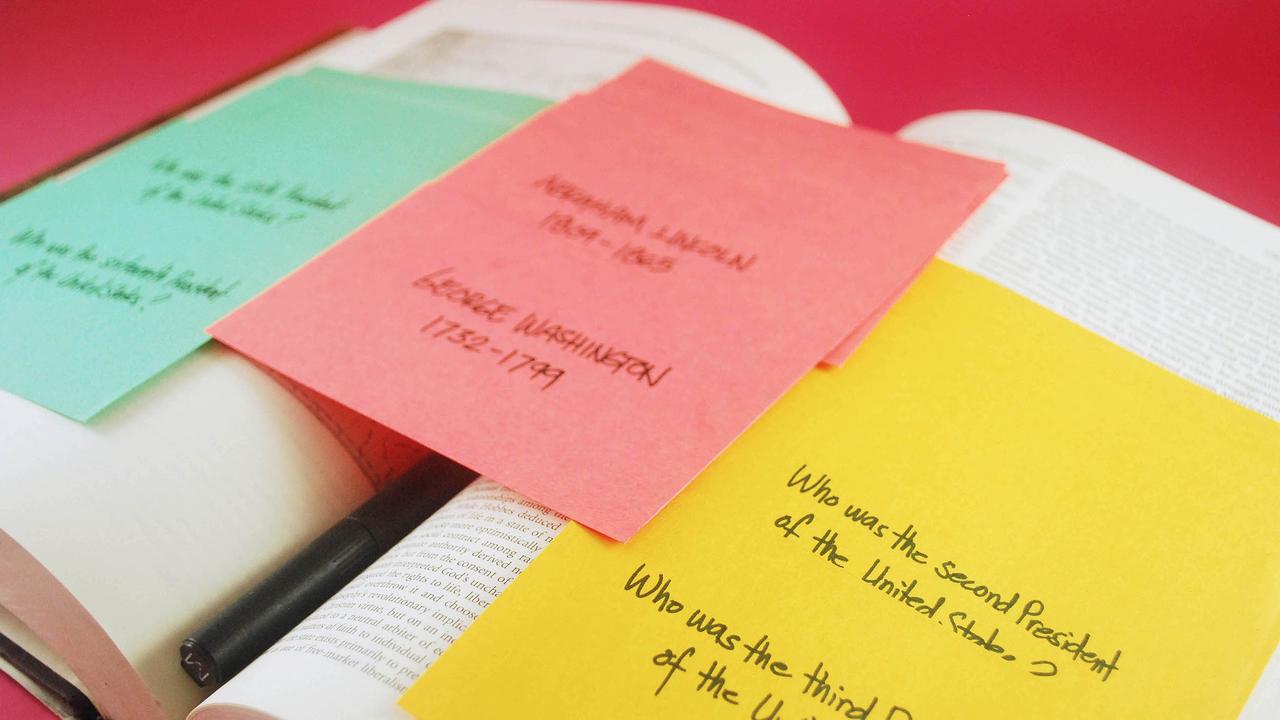HSC Chemistry 2024: Top ranked Knox Grammar’s teachers reveal exam tips and tricks
HSC Chemistry is considered one of the most challenging of the ‘standard’ subjects. Last year almost a third of Knox Grammar’s students scored in the top band. Here’s how they did it.

Education
Don't miss out on the headlines from Education. Followed categories will be added to My News.
The HSC Chemistry course is often considered one of the most challenging of the ‘standard’ subjects, with the exam requiring students to both think mathematically, and communicate well-written justifications for their work.
Last year 46 boys at Knox Grammar school on Sydney’s upper north shore achieved Band 6s in the subject – almost a third of the school’s Chemistry cohort.
Here, Director of Stage 6 studies and Chemistry teacher Mrs Beth Goddard, and fellow Knox chemistry teacher Ms Chantal Dreesbeimdieke share their tips for all students to achieve the best possible results.
WHAT MARKERS WANT
“Looking for good Chemistry is paramount,” Mrs Goddard and Ms Dreesbeimdieke said, when asked what HSC exam markers will be looking for.

“Include correct chemical equations and specific terminology in your answers. Explanations should be clear and concise with detail addressing the verb.”
There are a few tricks students can have up their sleeves, too, to make sure they don’t miss marks by misunderstanding the questions.

“Know the syllabus so you know what concepts the examiners are examining,” they said.
“Scaffold the questions, use dot points, diagrams, tables to address the verb. Underline key words in the question, annotate any stimulus in the question and plan the extended response questions so that your answers are concise, clear, logical and detailed.”
TRICKY TOPICS TO BEWARE
The Knox chemistry teachers highlight three concepts that students often find challenging, and should ensure they revise thoroughly – the common ion effect (part of Module 5: Equilibrium and Acid Reactions), equilibrium constants (from the same topic) and Atomic Absorption Spectroscopy (AAS) calculations (from Module 8: Applying Chemical Ideas).

“Chemistry is a heavy content subject. Any question that relies on either explaining chemical concepts or unpacking difficult calculations, students find difficult,” they write.
“Explanation questions are the most common type of question and require a lot of detail. It can be hard to include the detail required to gain maximum marks for these questions.”
NEXT STEPS TO STUDY UP
At time of writing, Chemistry students have just over four weeks to study before they sit their final exam. Mrs Goddard and Ms Dreesbeimdieke say there’s three things every student should spend the next 30 days doing:
• Methodically go through the syllabus – don’t forget the dot points that require some research!
• Do past papers under timed conditions
• Do as many practise questions as you can and get feedback on your answers.
TAKING THE TEST – AND NAILING IT
The Chemistry HSC exam is a three hour test, with five additional minutes of reading time, consisting of two sections – 20 multiple choice questions worth one mark each, followed by approximately 12 to 17 short response questions worth a range of marks totalling 80.
“Use the 5 min reading time well. Find the questions with a lot of reading or stimulus and spend time looking carefully at those questions,” Mrs Goddard and Ms Dreesbeimdieke advised.

“Students should know that the multiple choice should increase in difficulty. Some of the multiple-choice questions towards the end of the paper could take several minutes.
“Perhaps leave these to come back to so that you have enough time to address all the short answer and extended response questions as time is precious in a Chemistry exam.
“Some students like to find questions they can do well and do them first to build confidence. Make sure you keep an eye on the time with about 1.8 mins per mark.”



